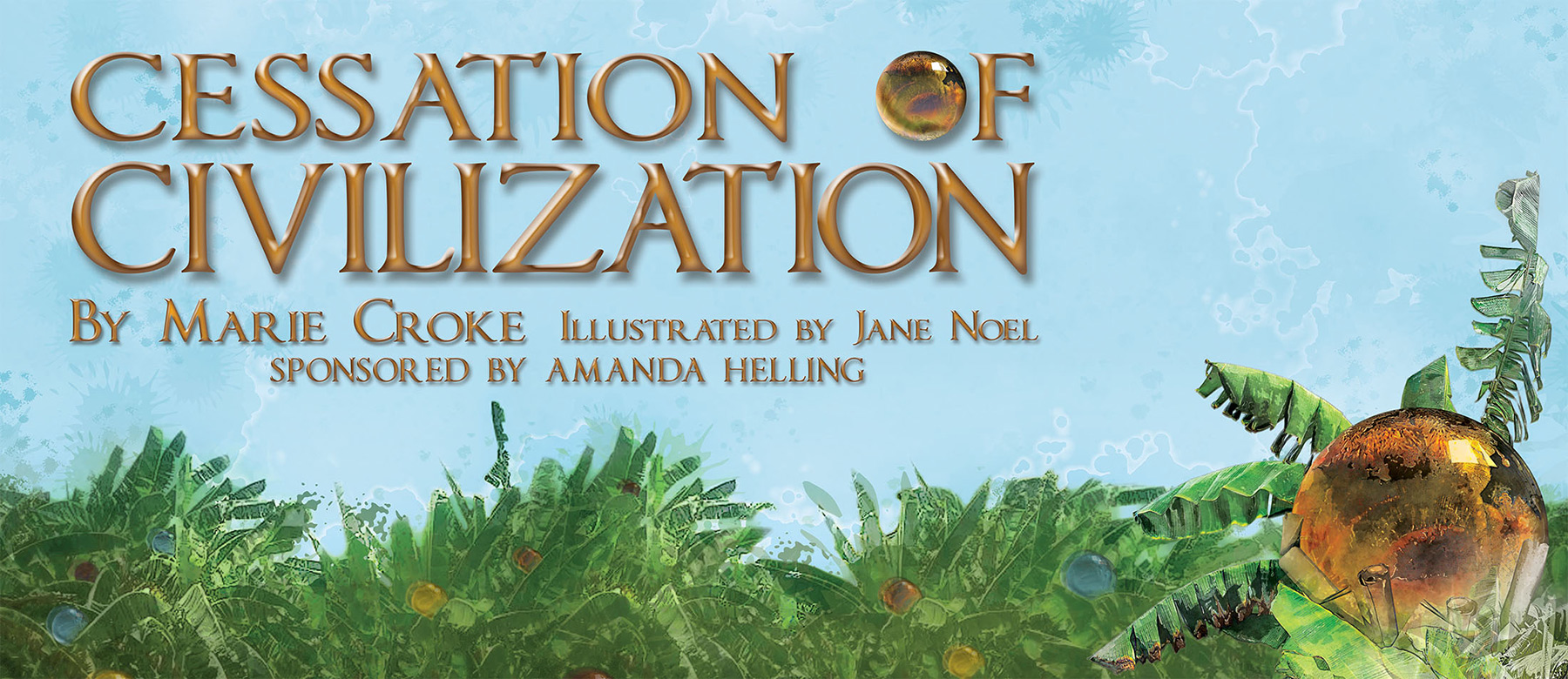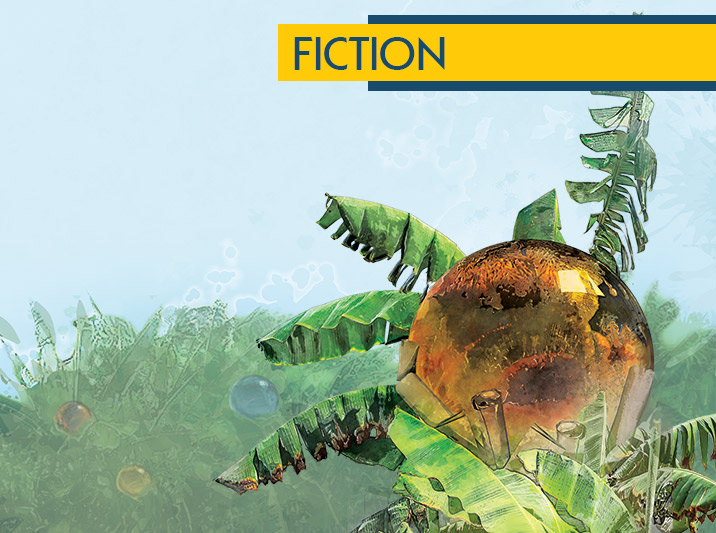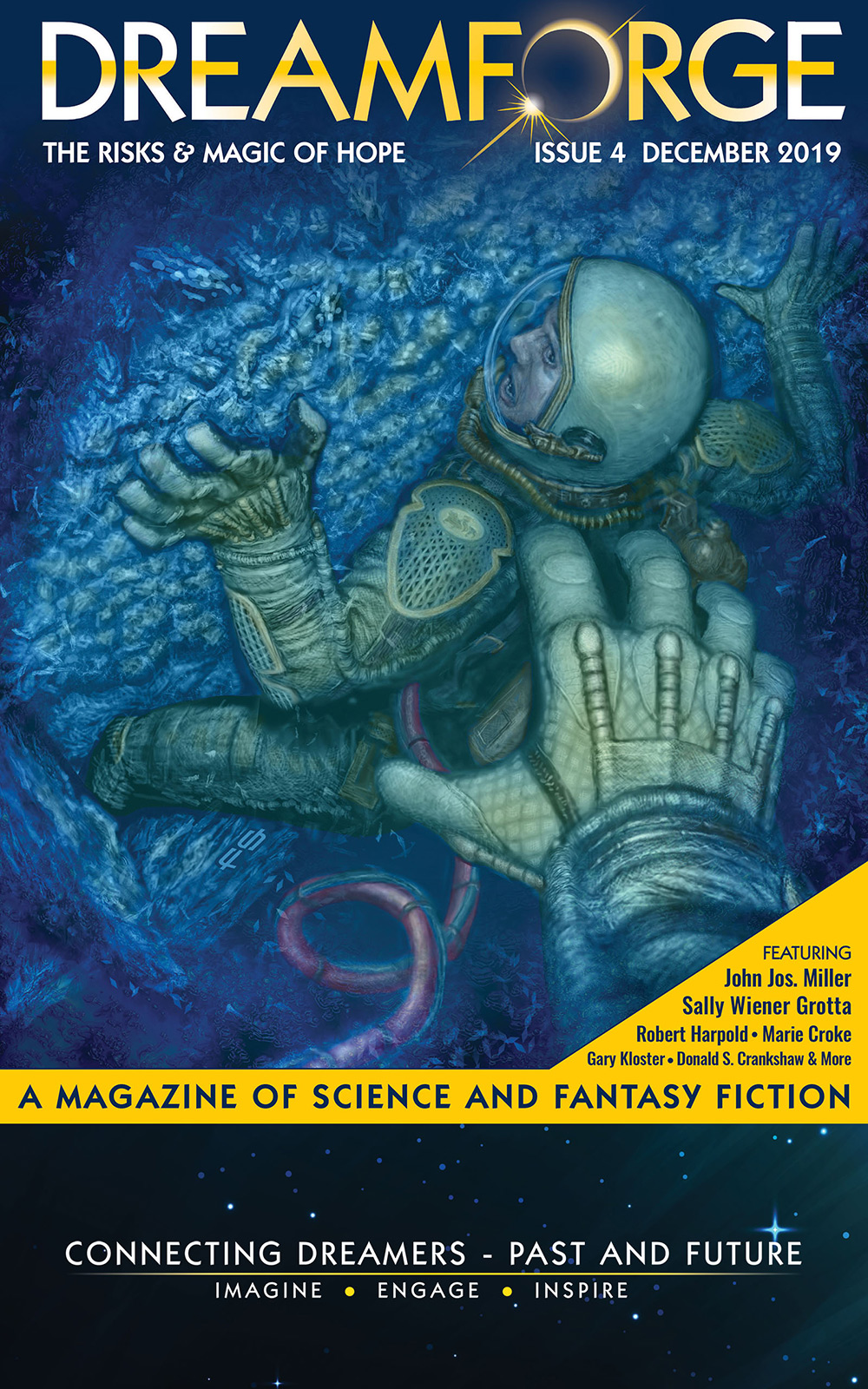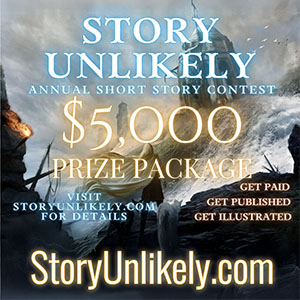
Rules ceased to exist come the final project. A smart student, and Leigh considered herself above average intelligence, found a mentor to guide her through the convoluted process of creating civilization. She’d chosen, if choose could be the right word, Morriton Toim—a bit of an abrasive man who didn’t stand for slackers, but he had a great success rate when it came to avoiding the decadence of his cultures.
“Start with the basics,” said Morriton when she went to him for advice. “Don’t bother me until you actually have something to show.”
So on yellow parchment paper Leigh sketched terrain and outlined ecosystems, wrote about societal obligations and expanded upon the culture as a whole, asking herself the entire time what might create the economic stability that would allow her people to flourish. She didn’t fill in the details. Too many details rotted the world. Nor did she leave the parchment sparse. Too much emptiness starved a civilization before it had a chance to grow.
When she’d finished, she wrote it fresh all over again to be sure erasure wouldn’t disturb the growth process. Then she covered her words with sealskin to gift her marine-based people an immediate source of nourishment, bound the book with seaweed and pierced the cover with tiny fish bones.
Morriton looked the whole thing over with a critical eye. “You’re overly focused on their way of life. No entertainment, no cultural celebrations to speak of. Reads dead.”
“I thought those would stem from their lives,” said Leigh, clasping her hands in front of her as she resisted the urge to become defensive. It’d been her best work, or so she’d thought. Graphite stained her aching fingers and her eyes felt strained from staring too long at her own words.
“That’s all well and good,” said Morriton, “However, it’s best to start them on a good note. Don’t lock them into tight constraints, just mention a festival or tradition they can expand on to their hearts content.” He tossed the book back to her, bending the cover of the sealskin.
“Would a boat race work?” she asked while also attempting to surreptitiously straighten out the crease on the cover.
Morriton waved a hand. “Perfect. Add a footnote while you’re at it, something mentioning an enemy.”
“What? No—I don’t want to have to balance a war.”
He eyed her sharply. “Then what’s going to keep your civilization from imploding? They need unification.”
“Ecological and geographical concerns. Natural enemies in the animal kingdom. Maybe even a separate apex predator.”
He harrumphed, but she noted a prideful note to the sound and a slight curling of his lips. “Add a footnote anyway. Nothing has to come of it, but it’d be good to have the option.”
So Leigh grudgingly added the footnote, then planted the book in a freshly fertilized corner of the Terra Gardens at the University. The civilization sprouted almost immediately, a little different than she’d imagined, but alive and well. The culture developed rapidly within a rounded world swelling against the leafy folds. Tiny people, far too small to see with the naked eye, sailed a sea held deep in the heart of the branches, seemingly happy to explore within her parameters.
She spent most of her time with a powerful magnifying glass in front of her face, analyzing how the people lived, a part of her giddy with excitement that her project had begun so well, especially after seeing how quickly others in her class failed. Some of their civilizations died at the seed, their source material skimped over by their creators. Others furled in on themselves after sprouting, unable to find the strength to bloom because their sketches and notes didn’t complement one another.
Leigh didn’t want her project to shrivel like so many others so she remained attentive to her culture’s changes, studying their altered ecosystem and constantly morphing society. Every time she saw a problem, she’d scribble an addendum and tuck it neatly within the smooth underside of the bulbous pod holding the civilization in place. At first, she’d write small, blunt changes once or twice a day, but as the world blossomed more fully the intricacies magnified and the systems degenerated, forcing her to create more addendums until the thick stalk became coated with slips of parchment.
Yet, the culture floundered. The government fizzled, the predators surged and that footnote of an enemy found the cracks needed to begin spreading their roots at the corner of the world.
Morriton found her standing with crinkled parchment in hand, a dozen different ideas scrawled across it, but none of them worthwhile. He glanced between her and the civilization, then bent slightly to see the yellowish tint of the stalk where the hundreds upon hundreds of addendums colored it.
“You’re micromanaging. Stop.”
“But it’s withering,” she protested, pointing to where the fronds drooped and the pod had compressed.
“Yep. It is.”
She glared at him, biting her tongue on frustrated words.
Unabashed, Morriton sat heavily on a nearby stone bench. “You had a good base. Logical and not too sparse or constricting. It’s instinct to want to protect them, but very rarely should you fiddle with a civilization once it blooms. You’ll just instigate problems. Leave this one alone and I bet you’ll see them turn themselves around.”
Confused and exhausted, Leigh sank onto the bench beside him and stared out over the garden. “So what am I supposed to do? Just watch and hope?”
Morriton sighed. “There’s plenty more parchment in the library and plenty more dirt in the garden.”












